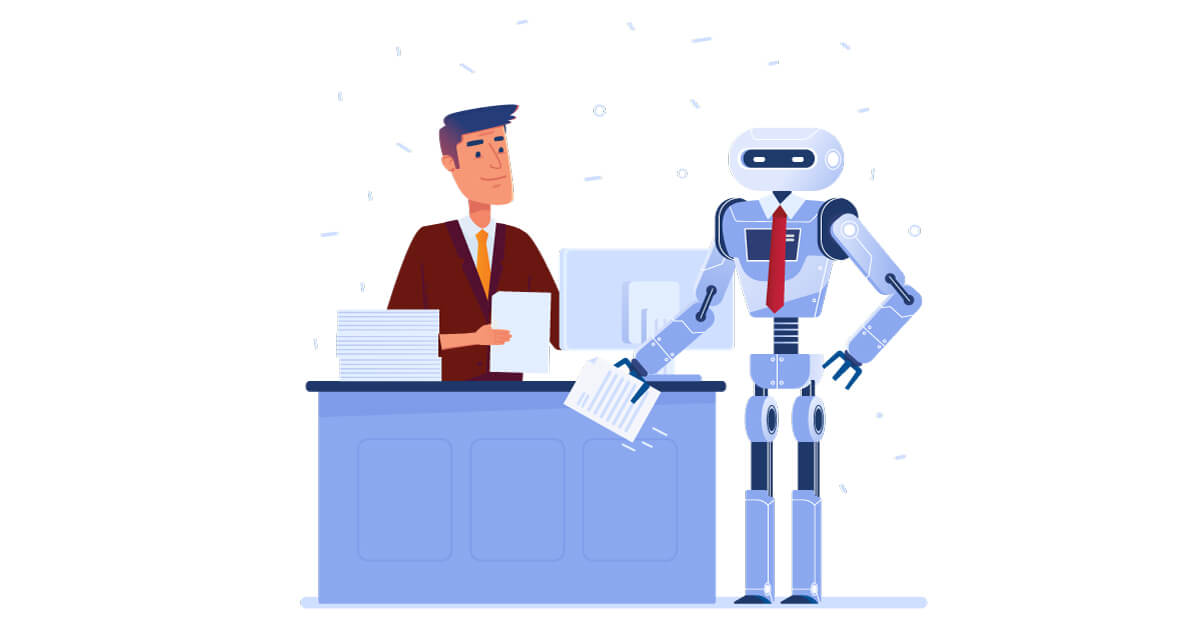Aiding mankind in all possible ways – is what AI is born for.
AI is a ‘big bang’ invention that, application-wise, is broad-spectrum, so much that almost all the industries are witnessing the changing of various trends as AI came into the mainstream of the recruitment process.
Put in other words, the steering of recruitment and hiring processes are being somewhat handed over to AI and so, the trends are rushing towards drastic changes.
The implementation of artificial intelligence is considered to be a positive refining measure in the recruitment process by 96% of senior HR. Whereas 13% of HR admit that AI has already established its presence in the day-to-day part of HR.
5 emerging trends in the AI-implemented recruitment process are:
Keyword-Filter of ResumesScanning the CVs and shortlisting the ones that are best suited for the job is a humongous task.
To ease the task for the recruiters, the apt software is fed with the desired keywords that are used to scan the cover letters and resumes. A lot of precious time and manpower is thus saved from going through hundreds and thousands of resumes.
Deciding the fate of the candidates solely based on keywords, keeping the experiences aside does leave out worthy candidates too, many times though. Yet, using artificial intelligence to simplify the tedious job is finding overwhelming acceptance these days.
Messaging Simplified
The recruiters need to be in touch with the candidates who have applied for the job, to convey their profile processing and hiring status.
AI can be used to send bulk ‘hired’ messages to the finally selected candidates and also the formal ‘not selected messages to the candidates who did not qualify for the screening tests.
Remote Worker Hiring
Remote working, also known as the ‘pajama revolution’, is an emerging work culture these days.
Many employees wish to work from a distance and denying their clause results in losing the talent to other competitor organizations.
But remote work culture has its challenges and difficulties.
Thanks to the AI, that remote workers can, now, be scheduled for face-time sessions, which bridges the distance gap and also maintains both-sided communications.
Referrals
The dawn of the employee referral programs is only because statistics proved the referred employees to be more loyal and dutiful in their jobs.
The AI is used to recognize those talents in the existing employee networks and suggests the best employee for referrals.
Facial Expression Analysis
AI pushed the recruitment process to the next level with the analysis of the facial expression of the candidates during video calling.
Video calling not only cuts-off the travel time and bridges the recruiter-candidate distance but also provides a deep analysis of facial expressions and hence, summarizing the candidate’s personality.
This is a relatively newer technology and to date, is not much accepted in the hiring processes.
AI has negative impacts too
Machines are on the way to acquire human intelligence and traits. But cannot be declared to be completely humanized as of now.
The degree of expert screening and analysis of a candidate for a particular job is optimized when done by a human recruiter. Many of the talented and deserving candidates are rejected when a machine is on the recruiter’s chair.
As already mentioned, shortlisting the candidates’ CV, based on certain keywords only, does ease out the work of the recruiters to a great extent, but, at the same time, rejects the experience enriched resumes too, which brings losses to the organization.
But on the good part, technology is rapidly improving and the best is yet to come. The prospects of AI are such that all the gems from the pool would safely be kept inside and the entire process will be efficiently driven entirely by expert machines, in the future.

